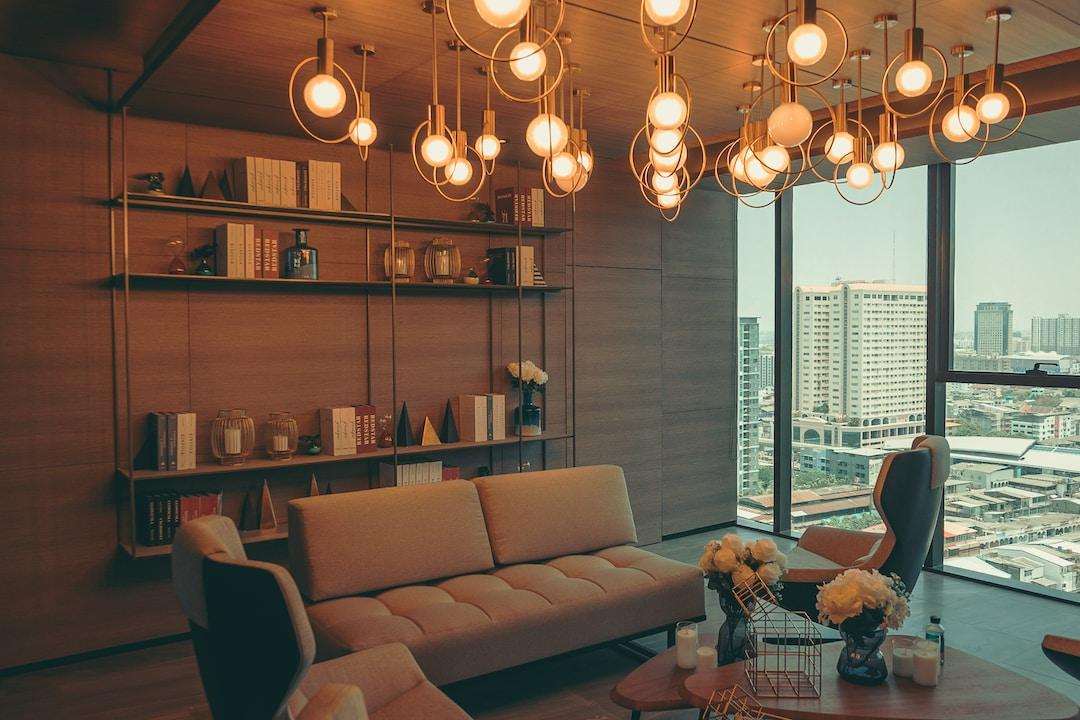Has the clutter in your living room left you feeling overwhelmed? The solution could lie in minimalism, a design style where less is truly more. Minimalism can transform any space into an oasis of calm, tranquility, and ultimate elegance. This article will assist you in making substantial changes to the aesthetics of your living room while adopting the minimalist design style. If you want to learn more, then keep reading!
Understanding Minimalist Design
First, it helps to understand what minimalism entails. It's about keeping the design simple and uncluttered, with no room for the unnecessary or extraneous. Every piece of furniture serves a purpose, creating a cohesively designed, functional space. Minimalist design primarily hinges on the notion of retaining only what's needed. Imagine your living room only housing pieces of furniture that you find useful or believe to be beautiful. The emphasis on function, simplicity, and clean lines means that minimalism goes
hand-in-hand with modern design.
Correctly executed, minimalist design can be replete with charm and character. Consider using neutral rugs to give the room a warm feel. Subtle patterns and textures in the rug can add interest without vanquishing the minimalist philosophy. Neutral rugs offer versatility in their design, making them compatible with various color schemes and furniture styles. Whether your minimalistic living room is primarily composed of monochromatic tones, earthy hues, or bold accents, a neutral rug effortlessly blends in and harmonizes with the other elements in the room. It serves as a foundation on which you can build a cohesive living space.
Choosing the Perfect Color Scheme for a Minimalist Living Room
Next, you need to settle on the color scheme. Minimalist design typically relies on a monochromatic or limited color palette. Neutral shades like beige, white, gray, and black are commonplace. Even if the palette skews to the neutral side, you can introduce subtle pops of color with carefully chosen artwork or accessories. Avoid overwhelming the space with bold, vivid tones, which can detract from the minimalist aesthetic.
Balance is key. While you can play with shades and tones, a minimalist living room when finished should exude peace and serenity. A well-executed color scheme should ensure visual harmony and understated elegance. While it seems like an easy task, choosing the right color palette needs care. The perfect color balance aids in creating a soothing, welcoming environment that aligns with the core principles of minimalist design.
Utilizing Natural Lighting for Minimalist Aesthetics
Lighting, particularly natural light, is an integral element in minimalist design. Ample natural light can make your living room feel larger, fresher, and more open—hallmarks of a minimalist space. Optimize the entry of natural light by using sheer curtains or blinds. If you have small windows, maximally use mirrors to reflect the natural light available.
For artificial lighting, opt for unobtrusive fixtures that are simple and sleek, like recessed lights or pendant lamps. Stay away from overly ornate or intricate light fixtures, as they can disrupt the harmonious feel of the space. Light allows you to play with shadow and texture, creating depth and visual interest in the room. So invest in high-quality lighting that highlights the beauty of the minimal aesthetics you try to achieve in your living room.
The Role of Decor in Creating Minimalist Spaces
While understated, decor plays a significant role in minimalist living rooms. It can add a touch of personality and draw the eye to key areas in the room. Choose decor items mindfully, keeping in mind that each piece should complement the room's design and serve a purpose. For wall art, opt for simple pieces that demand attention without creating visual chaos. When arranging these pieces, remember that space between items can be as important as the items themselves.
Plants also make excellent minimalist decor, effortlessly adding life and color to the space. They not only enhance the aesthetic appeal but also promote improved air quality, doubling up on functionality. Use decor sparingly. A minimalist living room should not feel overcrowded or chaotic—simply designed and elegantly stylized.
In conclusion, designing a minimalist living room is an opportunity to declutter your environment and promote peaceful living spaces. Though it does take a lot of effort, it is well worth it so you have a nice environment that you can enjoy for years to come. By following these steps, you will create a living room that embraces minimalistic design ethos and caters to your unique tastes and needs.


